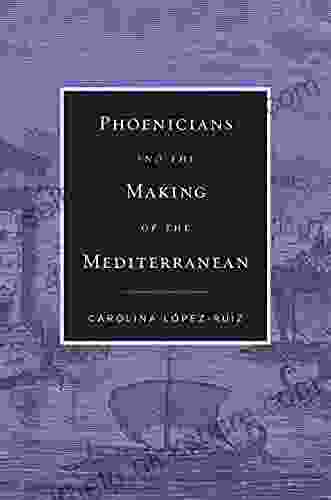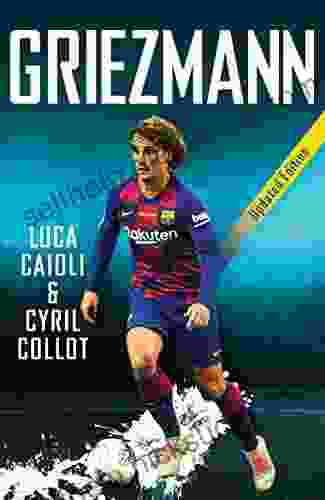The Phoenicians: Masters of the Mediterranean

The Phoenicians were a seafaring people who played a major role in the development of the Mediterranean region. They were skilled traders, shipbuilders, and explorers, and their influence can still be seen today in the languages, cultures, and economies of many Mediterranean countries.
5 out of 5
| Language | : | English |
| File size | : | 27457 KB |
| Text-to-Speech | : | Enabled |
| Screen Reader | : | Supported |
| Enhanced typesetting | : | Enabled |
| Print length | : | 440 pages |
The Phoenicians originated in the Levant, a region that includes present-day Lebanon, Syria, Israel, and Palestine. They began to build ships and sail the Mediterranean around 3000 BC, and by the 12th century BC they had established a network of trading posts and colonies throughout the region.
The Phoenicians were primarily merchants, and they traded a wide variety of goods, including wine, olive oil, glass, pottery, and textiles. They also exported slaves, who were often captured in their raids on coastal settlements.
In addition to their trading activities, the Phoenicians were also skilled shipbuilders and explorers. They developed the bireme, a type of galley with two banks of oars, which was faster and more maneuverable than the ships of their rivals. They also explored the Atlantic Ocean, and they may have even reached the Americas.
The Phoenicians founded many cities throughout the Mediterranean, including Carthage in North Africa, Cadiz in Spain, and Marseille in France. They also established colonies in Malta, Cyprus, Crete, Greece, and Italy.
The Phoenician Empire reached its height in the 6th century BC, but it began to decline in the 5th century BC with the rise of the Persian Empire. The Persians conquered Phoenicia in 539 BC, and the Phoenicians became a subject people.
Despite their conquest by the Persians, the Phoenicians continued to play an important role in the Mediterranean region. They remained skilled traders and shipbuilders, and they continued to found new colonies and expand their trade network.
The Phoenicians left a lasting legacy on the Mediterranean world. Their language, culture, and technology influenced the development of many Mediterranean civilizations, and their trading network helped to connect the peoples of the region.
Phoenician Art and Architecture
The Phoenicians were skilled craftsmen, and they produced a wide variety of art and architecture. Their most famous works include:
- The Temple of Melqart at Tyre, one of the largest and most impressive temples in the ancient world.
- The Royal Tombs of Sidon, a series of underground tombs that were decorated with elaborate reliefs and sculptures.
- The Phoenician alphabet, which was the first alphabet to be widely used in the Mediterranean region.
Phoenician Religion
The Phoenicians were polytheistic, and they worshipped a variety of gods and goddesses. Their most important gods included:
- Baal, the god of storm and rain.
- Astarte, the goddess of love and war.
- Melqart, the god of Tyre.
Phoenician Legacy
The Phoenicians left a lasting legacy on the Mediterranean world. Their language, culture, and technology influenced the development of many Mediterranean civilizations, and their trading network helped to connect the peoples of the region.
The Phoenicians were a truly remarkable people, and their achievements continue to be admired today.
5 out of 5
| Language | : | English |
| File size | : | 27457 KB |
| Text-to-Speech | : | Enabled |
| Screen Reader | : | Supported |
| Enhanced typesetting | : | Enabled |
| Print length | : | 440 pages |
Do you want to contribute by writing guest posts on this blog?
Please contact us and send us a resume of previous articles that you have written.
 Fiction
Fiction Non Fiction
Non Fiction Romance
Romance Mystery
Mystery Thriller
Thriller SciFi
SciFi Fantasy
Fantasy Horror
Horror Biography
Biography Selfhelp
Selfhelp Business
Business History
History Classics
Classics Poetry
Poetry Childrens
Childrens Young Adult
Young Adult Educational
Educational Cooking
Cooking Travel
Travel Lifestyle
Lifestyle Spirituality
Spirituality Health
Health Fitness
Fitness Technology
Technology Science
Science Arts
Arts Crafts
Crafts DIY
DIY Gardening
Gardening Petcare
Petcare C M Gray
C M Gray Steve Bisheff
Steve Bisheff Jim Holt
Jim Holt Babu The Panda
Babu The Panda Lara Lillibridge
Lara Lillibridge Richard Strozzi Heckler
Richard Strozzi Heckler Carol Potter
Carol Potter Michael Paul
Michael Paul Dk
Dk Aylette Jenness
Aylette Jenness Huw Price
Huw Price Bradley Stone
Bradley Stone Smadar Lavie
Smadar Lavie Simon Askey
Simon Askey Harry Bauld
Harry Bauld Fran Zimniuch
Fran Zimniuch E Randolph Richards
E Randolph Richards William Schoolcraft
William Schoolcraft Rehan Haider
Rehan Haider Collins Dictionaries
Collins Dictionaries Suzanne Jurmain
Suzanne Jurmain Tara Dixon Engel
Tara Dixon Engel David Landis
David Landis Sara Zarr
Sara Zarr Efrain Galeano
Efrain Galeano Paul Bodine
Paul Bodine Andy Mcilree
Andy Mcilree Jerry Scott
Jerry Scott Stewart M Green
Stewart M Green J A Baker
J A Baker John Skinner
John Skinner Dean Karnazes
Dean Karnazes Eitan Bar
Eitan Bar John Austin
John Austin Deanna Roy
Deanna Roy Bruno Barnhart
Bruno Barnhart Heather Heying
Heather Heying Proprietary Edition Kindle Edition
Proprietary Edition Kindle Edition Michael Grimm
Michael Grimm Martha Raile Alligood
Martha Raile Alligood Beverly Bell
Beverly Bell Conrad Anker
Conrad Anker Arthur Benjamin
Arthur Benjamin Ken Phillips
Ken Phillips R F Egerton
R F Egerton Robert W Sullivan Iv
Robert W Sullivan Iv Kathy Hirsh Pasek
Kathy Hirsh Pasek Beverly Conyers
Beverly Conyers Miriam Erick
Miriam Erick Nancy Owens Barnes
Nancy Owens Barnes Sarah B Bush
Sarah B Bush Morgan Murphy
Morgan Murphy Leslie T Chang
Leslie T Chang Barry Cunliffe
Barry Cunliffe Jessica Nabongo
Jessica Nabongo Clive Finlayson
Clive Finlayson Ori Hofmekler
Ori Hofmekler Bubba Watson
Bubba Watson N West Moss
N West Moss Mercedes Lackey
Mercedes Lackey John D Mccann
John D Mccann Audrey Grey
Audrey Grey Deborah Miller
Deborah Miller Jeff Vandermeer
Jeff Vandermeer Yogi Ramacharaka
Yogi Ramacharaka Jermaine Marshall
Jermaine Marshall James Ladyman
James Ladyman Cora Seton
Cora Seton Greg B Smith
Greg B Smith Lucy Hopping
Lucy Hopping Cat Coluccio
Cat Coluccio Kilian Jornet
Kilian Jornet Ernestine Gilbreth Carey
Ernestine Gilbreth Carey James Nestor
James Nestor Kathleen M Eisenhardt
Kathleen M Eisenhardt John Swinton
John Swinton George Orwell
George Orwell Brooke Dojny
Brooke Dojny Heather E Schwartz
Heather E Schwartz Greg Gatz
Greg Gatz Marie Rutkoski
Marie Rutkoski Bob Weeks
Bob Weeks Catherine Belknap
Catherine Belknap Loren W Christensen
Loren W Christensen Jessica S Olson
Jessica S Olson Katie Hoff
Katie Hoff The Car Crash Detective
The Car Crash Detective Greg Lavern
Greg Lavern Pedro G Ferreira
Pedro G Ferreira Lise Eliot
Lise Eliot Matt Forbeck
Matt Forbeck Conrad Goeringer
Conrad Goeringer Austin Ruse
Austin Ruse John Gray
John Gray Patricia Stacey
Patricia Stacey James Ori
James Ori Barbara Blitzer
Barbara Blitzer Jonathan Cane
Jonathan Cane Kenneth P Miller
Kenneth P Miller Robert M Bramson
Robert M Bramson Uta C Merzbach
Uta C Merzbach John Connor
John Connor Seth Kantner
Seth Kantner Martins Zaumanis
Martins Zaumanis S Ali Myers
S Ali Myers Nick Fragel
Nick Fragel Rick Burgess
Rick Burgess John Gierach
John Gierach Gary Webster
Gary Webster Don Casey
Don Casey Fennel Hudson
Fennel Hudson Norman Ollestad
Norman Ollestad Lisa Gache
Lisa Gache Casey Barber
Casey Barber Asia Citro
Asia Citro Deanna Pecaski Mclennan
Deanna Pecaski Mclennan Lilith Dorsey
Lilith Dorsey Stephen Morris
Stephen Morris Manly P Hall
Manly P Hall John Misha Petkevich
John Misha Petkevich Jayme Adelson Goldstein
Jayme Adelson Goldstein Laura Riley
Laura Riley Aubre Andrus
Aubre Andrus Duncan J Watts
Duncan J Watts Sharon Baranoski
Sharon Baranoski Tori Bortman
Tori Bortman Temple Bailey
Temple Bailey Brent Runyon
Brent Runyon Ervin Laszlo
Ervin Laszlo Sam Quek
Sam Quek Gabriela Rosa
Gabriela Rosa Ed Jaworowski
Ed Jaworowski Tony Clunn
Tony Clunn Linda Fairley
Linda Fairley Gary D Wale
Gary D Wale J C Pater
J C Pater Aspen Matis
Aspen Matis Paul Tukey
Paul Tukey Rachel Mitchell
Rachel Mitchell Charles L Thompson
Charles L Thompson Antoni Porowski
Antoni Porowski Ron Dalby
Ron Dalby Brent Dykes
Brent Dykes Peggy Kaye
Peggy Kaye Kay Wills Wyma
Kay Wills Wyma Larry Dane Brimner
Larry Dane Brimner Rajeev Lal
Rajeev Lal Brigid Kemmerer
Brigid Kemmerer Jeff Szuhay
Jeff Szuhay Audrey Coulthurst
Audrey Coulthurst Leonard Mlodinow
Leonard Mlodinow Mami Wata
Mami Wata Christopher Burris
Christopher Burris William M Kelso
William M Kelso Levison Wood
Levison Wood David Dalglish
David Dalglish Nancy Friday
Nancy Friday Mike Kim
Mike Kim Lizzie Lane
Lizzie Lane Wilfrid Jonson
Wilfrid Jonson Scott Turansky
Scott Turansky James Deetz
James Deetz Beatrice Bruteau
Beatrice Bruteau Paul Pilkington
Paul Pilkington Deborah T Goldberg
Deborah T Goldberg Carly Gelsinger
Carly Gelsinger Ellyn Sanna
Ellyn Sanna Ken Fry
Ken Fry Catherine Rodgers
Catherine Rodgers Darryl Cunningham
Darryl Cunningham Kristin Fontichiaro
Kristin Fontichiaro Paul Oliver
Paul Oliver Maria Montessori
Maria Montessori Karl Fulves
Karl Fulves Larry Gonick
Larry Gonick Cece Winans
Cece Winans Chris Burkard
Chris Burkard Tracey L Moore
Tracey L Moore Marc D Lewis
Marc D Lewis James Garbarino
James Garbarino Patrick Holford
Patrick Holford Richard Boergers
Richard Boergers Drew Harris
Drew Harris Avinash K Dixit
Avinash K Dixit Miriam Manela
Miriam Manela Bill Thorness
Bill Thorness Justine Kerfoot
Justine Kerfoot Gabrielle Bossis
Gabrielle Bossis Chris Santella
Chris Santella John S Ahlquist
John S Ahlquist Prayer M Madueke
Prayer M Madueke John Updike
John Updike Sam Pathy
Sam Pathy Lew Freedman
Lew Freedman Lois Lowry
Lois Lowry Shelly Rainforth Collins
Shelly Rainforth Collins Madeleine Roux
Madeleine Roux Dan Morse
Dan Morse Brandon Sneed
Brandon Sneed Lisa Fain
Lisa Fain Deborah J Rumsey
Deborah J Rumsey Jerome D Smalls
Jerome D Smalls Izabelle Winter
Izabelle Winter Kimberly Willis
Kimberly Willis Autumn Carpenter
Autumn Carpenter Johny Pitts
Johny Pitts Dustin Hansen
Dustin Hansen Athena P Kourtis
Athena P Kourtis Moon Travel Guides
Moon Travel Guides Gail M Nelson
Gail M Nelson Fred Provenza
Fred Provenza Nfhs
Nfhs Sandy Hall
Sandy Hall Leonard Susskind
Leonard Susskind Linda West
Linda West Peter Levin
Peter Levin Pete Whittaker
Pete Whittaker Gillian Bradshaw
Gillian Bradshaw Tara Sim
Tara Sim Kathy Pike
Kathy Pike Hourly History
Hourly History Vivian Sandau
Vivian Sandau Babatunde Peter
Babatunde Peter Jesus Salcedo
Jesus Salcedo Deborah Hughes Hallett
Deborah Hughes Hallett Colleen Hoover
Colleen Hoover Edward Lee
Edward Lee Audrey Sutherland
Audrey Sutherland Warren W Wiersbe
Warren W Wiersbe Bernie Chowdhury
Bernie Chowdhury E W Bullinger
E W Bullinger Lori Foster
Lori Foster Austa Somvichian Clausen
Austa Somvichian Clausen Greta Eskridge
Greta Eskridge Claire Nance
Claire Nance Dk Eyewitness
Dk Eyewitness William Woys Weaver
William Woys Weaver Ethan Sawyer
Ethan Sawyer Martin Rees
Martin Rees Stephanie Donaldson Pressman
Stephanie Donaldson Pressman Zhi Gang Sha
Zhi Gang Sha Tomasz Witkowski
Tomasz Witkowski Harlan Coben
Harlan Coben Quick Reads
Quick Reads Elizabeth M Ward
Elizabeth M Ward Richard Ferber
Richard Ferber Dave Ramsey
Dave Ramsey Laurie Katz
Laurie Katz Ryan Sleeper
Ryan Sleeper Esther M Toddler
Esther M Toddler Fred Mitchell
Fred Mitchell John Quick
John Quick Steve Oakes
Steve Oakes Joe Baird
Joe Baird Deborah Falaye
Deborah Falaye Susan F Paterno
Susan F Paterno Emily Whaley
Emily Whaley Philip Clayton
Philip Clayton Vance Packard
Vance Packard Danny Staple
Danny Staple Joanne Simon Walters
Joanne Simon Walters Mike Mastracci
Mike Mastracci Vasily Mahanenko
Vasily Mahanenko Conor Sullivan
Conor Sullivan Graham Frankel
Graham Frankel Ken Denmead
Ken Denmead Spike Walker
Spike Walker Christine Ann Lawson
Christine Ann Lawson Avery Faigenbaum
Avery Faigenbaum Carolyn Wyman
Carolyn Wyman Lindsey Philpott
Lindsey Philpott Asiphile Qulu
Asiphile Qulu Cynthia Hand
Cynthia Hand Ayn Rand
Ayn Rand Charles D Garvin
Charles D Garvin Janis B Meredith
Janis B Meredith Rufus Stephens
Rufus Stephens Tarik Unal
Tarik Unal Karen Berger
Karen Berger Vb Leghorn
Vb Leghorn Sarah Boslaugh
Sarah Boslaugh David Code
David Code Robert T Clemen
Robert T Clemen Print Replica Kindle Edition
Print Replica Kindle Edition Robert Chuckrow
Robert Chuckrow David Shoalts
David Shoalts Terasa Cooley
Terasa Cooley Ben Riggs
Ben Riggs Jessica Nordell
Jessica Nordell Mandy Khoshnevisan
Mandy Khoshnevisan Reinhard Bonnke
Reinhard Bonnke David Acheson
David Acheson Kira Breed Wrisley
Kira Breed Wrisley Jens Voigt
Jens Voigt Robert Simons
Robert Simons Penny Simkin
Penny Simkin Picabo Street
Picabo Street Roger Lajoie
Roger Lajoie Jonothan Page
Jonothan Page Judith Z Kallenbach
Judith Z Kallenbach Janet Gurtler
Janet Gurtler Denny Emerson
Denny Emerson Peter Gieler
Peter Gieler Samantha Bongeka Nqoko
Samantha Bongeka Nqoko Fred Alan Wolf
Fred Alan Wolf Blake Boles
Blake Boles Brett Ortler
Brett Ortler Paul Parsons
Paul Parsons Bernd Brunner
Bernd Brunner Simon Pridmore
Simon Pridmore Dan Blanchard
Dan Blanchard Daffodil Campbell
Daffodil Campbell Mia Baxter
Mia Baxter Kevin Kelly
Kevin Kelly Scott Mactavish
Scott Mactavish Joe Ryder
Joe Ryder E Paul Zehr
E Paul Zehr Susan M Sheridan
Susan M Sheridan Lyn Millner
Lyn Millner Peter Bronski
Peter Bronski Hugh Acheson
Hugh Acheson Madelynne Diness Sheehan
Madelynne Diness Sheehan Alan Lightman
Alan Lightman Keith Mcnulty
Keith Mcnulty Augustus M Walton
Augustus M Walton Julia Albu
Julia Albu Randi Kreger
Randi Kreger Mohamed F El Hewie
Mohamed F El Hewie Mike Eruzione
Mike Eruzione Terry Marsh
Terry Marsh Joe Friel
Joe Friel Qukids
Qukids Cornelia Pelzer Elwood
Cornelia Pelzer Elwood Katie Cotugno
Katie Cotugno Bob Smale
Bob Smale Lore M Dickey
Lore M Dickey Mike Doyle
Mike Doyle Jennifer Love
Jennifer Love M D William W Forgey
M D William W Forgey Steven M Bragg
Steven M Bragg Martin Liebscher
Martin Liebscher Kindle Edition
Kindle Edition Liz Carmack
Liz Carmack Gemma Mccrae
Gemma Mccrae Mark Baker
Mark Baker T Berry Brazelton
T Berry Brazelton Jacqui Letran
Jacqui Letran Nsca National Strength Conditioning Association
Nsca National Strength Conditioning Association Tracy Deonn
Tracy Deonn Timothy J Jorgensen
Timothy J Jorgensen Karen Whitley Bell
Karen Whitley Bell Steven Brill
Steven Brill Eric Jones
Eric Jones Richard Miles
Richard Miles Darren Palmer
Darren Palmer Larry Miller
Larry Miller R Scott Thornton
R Scott Thornton John Littleford
John Littleford Thane K Pratt
Thane K Pratt Hillary Davis
Hillary Davis Spanked Teen
Spanked Teen Jim Fay
Jim Fay Dana Wechsler Linden
Dana Wechsler Linden Linda Dobson
Linda Dobson Kjell Erik Rudestam
Kjell Erik Rudestam Richard H Immerman
Richard H Immerman Dory Willer
Dory Willer Sadie Keller
Sadie Keller Robert Warden
Robert Warden Tom Rea
Tom Rea Lawrence A Kane
Lawrence A Kane G R S Mead
G R S Mead Patrick Hamill
Patrick Hamill Ethan Gallogly
Ethan Gallogly Gabriel Gambetta
Gabriel Gambetta John Hiker
John Hiker Darja Wagner Ph D
Darja Wagner Ph D Augustine Wetta
Augustine Wetta Kathy Jackson
Kathy Jackson George J Hademenos
George J Hademenos Rudy Sanchez
Rudy Sanchez Eunice Pennington
Eunice Pennington Shelley Johnson
Shelley Johnson Dougald Macdonald
Dougald Macdonald Dr Jerisa Berry
Dr Jerisa Berry Steven Rinella
Steven Rinella Matt Wallaert
Matt Wallaert Robert E Howard
Robert E Howard Jim Collins
Jim Collins Nic Stone
Nic Stone Eric S Raymond
Eric S Raymond Joe Kelsey
Joe Kelsey Emenwa Global
Emenwa Global Yang Jwing Ming
Yang Jwing Ming Roy Benaroch Md
Roy Benaroch Md Debora Rasio
Debora Rasio Carl Safina
Carl Safina Casey Schreiner
Casey Schreiner Maureen Connolly
Maureen Connolly Larry Hart
Larry Hart Aubrey Hargis
Aubrey Hargis Mark Coeckelbergh
Mark Coeckelbergh Nita Sweeney
Nita Sweeney Nina W Brown
Nina W Brown Staff Of The Harvard Crimson
Staff Of The Harvard Crimson Brian Christian
Brian Christian Dusty Phillips
Dusty Phillips Gerald Paul Clifford
Gerald Paul Clifford Karen Skerrett
Karen Skerrett Vicki Hoefle
Vicki Hoefle Maya Angelou
Maya Angelou Alan Vermilye
Alan Vermilye Siddhartha Mukherjee
Siddhartha Mukherjee Don J Sharpsteen
Don J Sharpsteen Daria Blackwell
Daria Blackwell Rena Ejiogu
Rena Ejiogu Jessica Seinfeld
Jessica Seinfeld Timo Holmquist
Timo Holmquist Jeffrey Freed
Jeffrey Freed Kay Harris Kriegsman
Kay Harris Kriegsman M Prefontaine
M Prefontaine Brian A Hall
Brian A Hall Todd Mikkelsen
Todd Mikkelsen Tom Humphries
Tom Humphries Family Traditions Publishing
Family Traditions Publishing Stan Fischler
Stan Fischler Steve Colgate
Steve Colgate Audre Lorde
Audre Lorde Sonia Mainstone Cotton
Sonia Mainstone Cotton Sanya Richards Ross
Sanya Richards Ross Ashley Rhodes Courter
Ashley Rhodes Courter Adam Parkinson
Adam Parkinson Ayesha Ratnayake
Ayesha Ratnayake Atlas Kane
Atlas Kane Lamis Chebbi
Lamis Chebbi Gaby Melian
Gaby Melian Pat Mora
Pat Mora T J Emerson
T J Emerson Shepherd Mead
Shepherd Mead Joe Hutto
Joe Hutto Inga Aksamit
Inga Aksamit Geoffrey Budworth
Geoffrey Budworth Belinda Smith Sullivan
Belinda Smith Sullivan Larry Olmsted
Larry Olmsted Mark Gardener
Mark Gardener Sofia Price
Sofia Price Hilary Scarlett
Hilary Scarlett Mary Jayne Baker
Mary Jayne Baker Patrisia Gonzales
Patrisia Gonzales James Feess
James Feess Luca Caioli
Luca Caioli Laurie Kennedy Malone
Laurie Kennedy Malone Tiffany Wasson
Tiffany Wasson David J Miklowitz
David J Miklowitz Samir Okasha
Samir Okasha Robert M Steward
Robert M Steward John Sharp
John Sharp Barbara Oakley Phd
Barbara Oakley Phd B F Skinner
B F Skinner Patty Hahne
Patty Hahne Patricia L Thompson
Patricia L Thompson Foster Provost
Foster Provost Kaleb Dahlgren
Kaleb Dahlgren Tim Muehlhoff
Tim Muehlhoff Sharon Slater
Sharon Slater Florin Grancea
Florin Grancea Nathan Clark
Nathan Clark Tony Nester
Tony Nester Carol Ann Rinzler
Carol Ann Rinzler Linda Wong
Linda Wong Colin Towell
Colin Towell Dima Zales
Dima Zales Johnette Howard
Johnette Howard Marc Kery
Marc Kery Gareth Loy
Gareth Loy Laura A Roser
Laura A Roser Blake Dresden
Blake Dresden Leigh Pearson
Leigh Pearson Mark Parman
Mark Parman Kevin Bales
Kevin Bales Chloe Lukasiak
Chloe Lukasiak Ben Sasse
Ben Sasse Renzo Gracie
Renzo Gracie Jeannie Burlowski
Jeannie Burlowski Don Orwell
Don Orwell
Light bulbAdvertise smarter! Our strategic ad space ensures maximum exposure. Reserve your spot today!
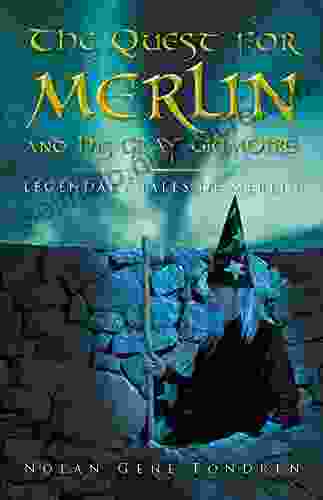
 Vincent MitchellUnveiling the Enchanting Lore of Merlin: A Journey into the Legendary Tales...
Vincent MitchellUnveiling the Enchanting Lore of Merlin: A Journey into the Legendary Tales... Devin CoxFollow ·6.5k
Devin CoxFollow ·6.5k Marcel ProustFollow ·16.4k
Marcel ProustFollow ·16.4k Benji PowellFollow ·8.7k
Benji PowellFollow ·8.7k Neil ParkerFollow ·4.6k
Neil ParkerFollow ·4.6k Hector BlairFollow ·6.3k
Hector BlairFollow ·6.3k Oliver FosterFollow ·9.8k
Oliver FosterFollow ·9.8k Wesley ReedFollow ·8.2k
Wesley ReedFollow ·8.2k Anthony BurgessFollow ·9.5k
Anthony BurgessFollow ·9.5k

 Jett Powell
Jett PowellHow to Choose a Church That's Right for You
Choosing a church...
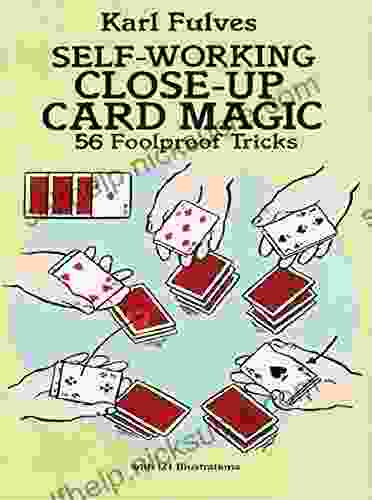
 Bryan Gray
Bryan GrayThe Unbelievable World of Self-Working Close Up Card...
Imagine having...
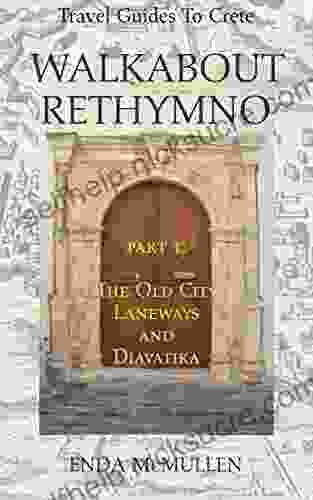
 Junot Díaz
Junot DíazUnveiling the Enchanting Old City Laneways and Diavatika:...
Crete, the largest of...

 Jamison Cox
Jamison CoxA Year in the American Wild: Recreating a Feast from...
For one year, I lived off...
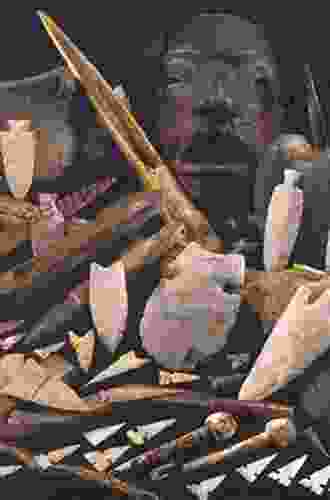
 Holden Bell
Holden BellArchaeology of Early American Life: An Exploration of...
The archaeology...

 Rodney Parker
Rodney ParkerRegain Your Fertility By Reversing Insulin Resistance,...
If you're struggling to conceive, you may be...
5 out of 5
| Language | : | English |
| File size | : | 27457 KB |
| Text-to-Speech | : | Enabled |
| Screen Reader | : | Supported |
| Enhanced typesetting | : | Enabled |
| Print length | : | 440 pages |


